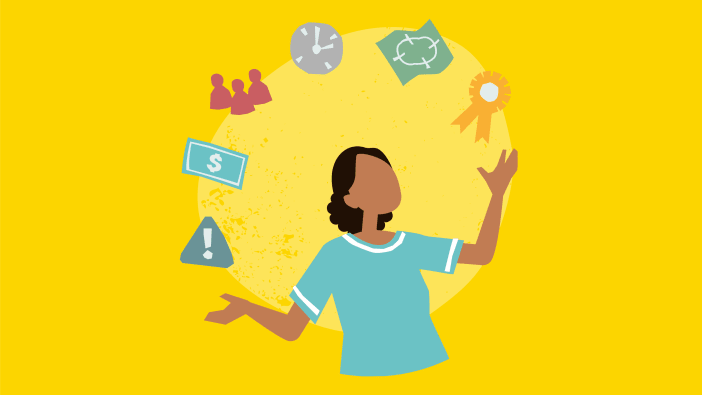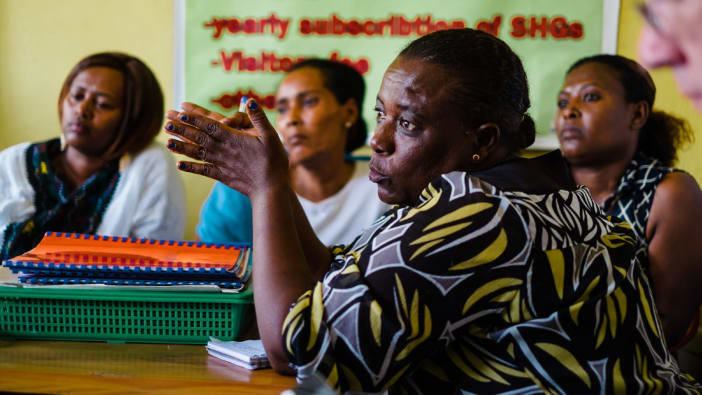by Vannesa Lovera Hidalgo.
The Asociación San Lucas (Saint Luke’s Association) works to develop communities by providing training in planning and negotiation skills, and by encouraging networking with the local government and other organisations.
We have worked with three communities: Las Palmeras, Nuevo Milagro and Guillermo in the San Martin Region of Peru. These communities, like many others, had problems because their leaders lacked confidence, skills and capacity. They were unable to take action in advocacy and promoting development. There was also a need to improve relationships with local government and other organisations.
Asociación San Lucas, together with the town council, arranged training in human rights, community participation and rural development. We worked to strengthen existing development programmes and make them more sustainable. We encouraged communities to participate fully in planning, helping them to prioritise their needs, agree possible solutions and set goals. Other organisations also joined in this work, which helped to develop positive relationships.
Asociación San Lucas believes that all training efforts should be accompanied by action. Communities took part in the local government budgeting process to make sure their priorities were included. Community members set aside work days to gather information, identify ideas and plan projects.
Once the planning stage was over, the three communities and Asociación San Lucas monitored the result of their work. Everyone appreciated the value of this networking and accountability. It strengthens local leadership and helps to build sustainability into community processes. Community leaders are now more confident, have improved unity and trust, and are better organised and able to manage existing and new projects. They can identify their own responsibilities and solve any conflicts which might arise in the community.
Here are some of the lessons learned:
- We learned the importance of valuing local people’s knowledge and building up community knowledge.
- We learned that complex situations challenge us to be creative, and think of new ways to do things.
- We learned how to build closer relationships with people, understanding their thinking and fears.
- We learned to work together better, to accept each other with our differences, and to overcome difficulties within the Asociación San Lucas.
- We learned to believe that anything can change, however big the problems may seem.
We give thanks to God for helping us to get over the barriers. We continue to trust in his help as we seek to extend his Kingdom of abundant life, peace, love and justice.
Nurse Vannesa Lovera Hidalgo is Director of Community Development for Asociación San Lucas, Apdo 2, Moyobamba, San Martín, Peru. E-mail: [email protected]
Case study: Learning to work together
Luis Llamo Torres is a community representative to the local government for Las Palmeras. He says that before the Asociación San Lucas began working in his community, they were unable to get any support from the government. They used to argue a lot and didn’t know how to work together. Luis says, ‘Now we know that we have the right to ask the local government for information, and they have to give it to us. The local people have learned that if we don’t work together there will be no progress in Las Palmeras. Now when there is a problem we get together and talk about it.’ His community now has government support for their water project.








